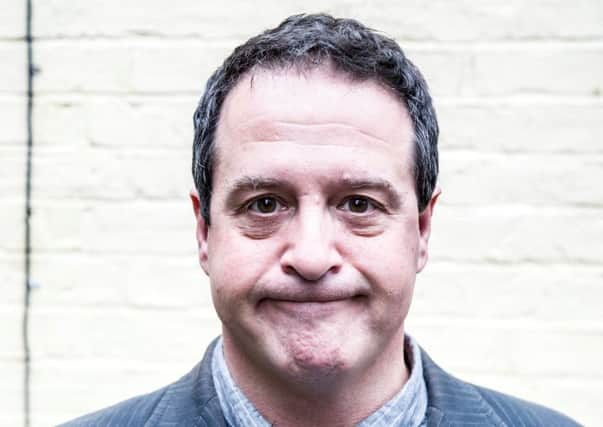Campaigning comic Mark Thomas explores The Red Shed


The conclusion is another nationwide tour this autumn as Mark returns to the place where it all began – the Red Shed, a labour club in Wakefield – to celebrate the club’s 50th birthday.
Mark plays The Old Market, Hove (01273 201 800), on Tuesday, November 8, and St Mary in the Castle, Hastings (01424 715880), on Wednesday, November 9.
Advertisement
Hide AdAdvertisement
Hide AdAs Mark explains, The Shed, home to Mark’s first public performances, is also a home to dissent, to organising and to progressive politics, and it was here that Mark’s true political prowess began.
An iconic and vital place for its patrons, this is where the true meaning of solidarity is found and where you can be part of history and part of the struggle.
Mark describes himself as a south London lad, born to a Thatcherite world of self-employed builders, labourers and tradesman like his father where the individual was key.
Wakefield’s alien traditional labour community awoke a new determination in Mark and changed his life forever.
Advertisement
Hide AdAdvertisement
Hide AdInterviewing old friends and comrades, Mark pieces together the club’s history and works alongside it to campaign with some of the poorest workers in the country. It is the story of the battle for hope and the survival of a community, Mark explains.
And it is just right for what Mark terms the “post-factual world” – a reference to Michael Gove’s announcement that we don’t need experts.
“It’s a world where we just want our views confirmed. It doesn’t matter if it is fact or fiction.”
Except Mark takes the view that it does matter. It really matters where we are going next, just as it matters where we came from.
Advertisement
Hide AdAdvertisement
Hide Ad“This is the story about why it is important to have factual stories, why it is important to have truth in our narratives.”
Which brings Mark on to a conversation he was just having with his 22-year-old son: “He said to me ‘The more I think about it, the more I think all this [rubbish] started with Thatcher.’ I thought ‘My work is done!’ The whole question of unionism, solidarity and collective aspiration was shattered with Thatcher.
“This show is about history. It is also about personal history, about me and my mates that I got to know through the miners’ stories through the miners’ strike.”
On the last day of the strike, Mark marched back with the miners. They passed a primary school in which all the children were singing of solidarity.
“In the show I try to find them. All of them are fantastic examples of how you defy your circumstances…”